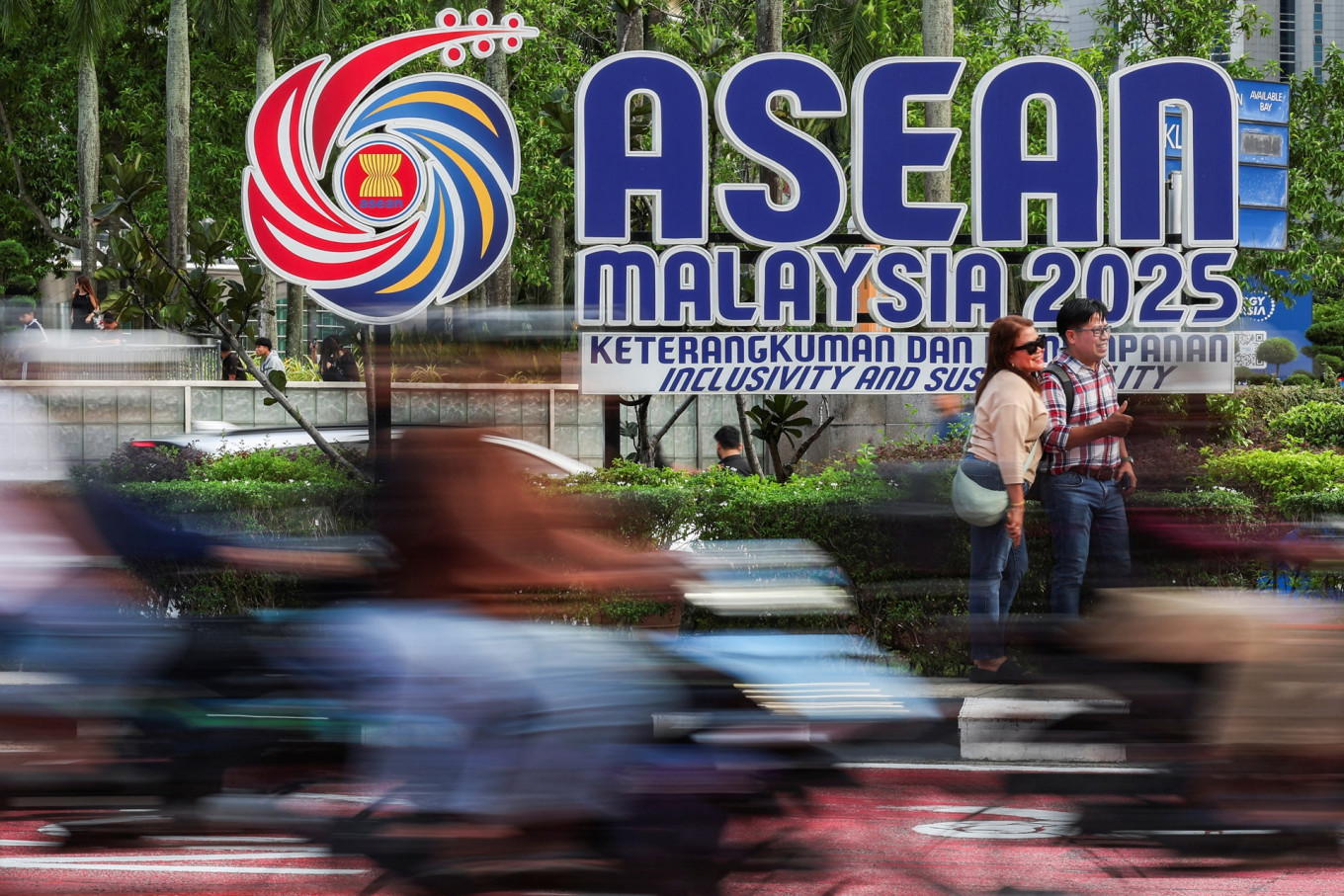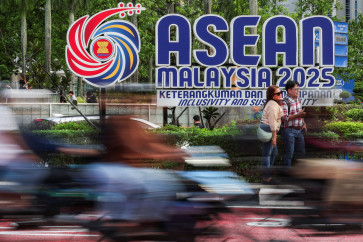Popular Reads
Top Results
Can't find what you're looking for?
View all search resultsPopular Reads
Top Results
Can't find what you're looking for?
View all search resultsASEAN turns geoeconomic turbulence into regional strategy
The summit is a chance to reaffirm ASEAN centrality in promoting open, inclusive regional economic integration amid rising protectionism.
Change text size
Gift Premium Articles
to Anyone
T
his week, leaders of ASEAN countries and dialogue partners gather in Kuala Lumpur to complete Malaysia’s ASEAN Chairmanship this year. The event comes at a difficult time, yet the group managed to respond with surprising pace and cohesion.
Tensions already escalated as early as April, when the United States imposed unilateral tariffs on its partners, including ASEAN members and pressed for “reciprocal” deals. ASEAN’s first answer was swift and clear. Within a week, the economic ministers convened a special session and agreed on a three-pronged action: avoid retaliation and open dialogue with the US, uphold multilateral rules and build internal and regional resilience to resist external shocks.
In the same spirit, ASEAN established the ASEAN Geoeconomics Task Force (AGTF), composed of senior officials and experts, to develop coordinated policy recommendations. Under Malaysia’s leadership, and with strong support from Indonesia and other member states, the task force has produced a set of practical recommendations to respond strategically and cohesively.
One key recommendation is to view current challenges not merely as economic issues but through a broader, cross-pillar perspective that connects economic and political security. This reflects a growing recognition that economics and security are now deeply intertwined. The boundaries between the two have blurred as trade measures, supply chains and investment decisions are increasingly used for strategic influence.
During the July 9 ASEAN Foreign Ministers’ Meeting, Malaysian Prime Minister Anwar Ibrahim called for “even closer alignment between ASEAN’s foreign and economic policy responses,” stressing that “the challenges we face do not observe bureaucratic fiefdoms, nor can our responses.”
Last week, for the first time ASEAN convened a joint meeting between its foreign and economic ministers, to establish explicit cross-pillar coordination. This marks a significant shift aimed at ensuring a more unified and strategic response to the evolving geoeconomic landscape. The Leaders’ Summit this week is expected to reinforce this comprehensive approach, signaling ASEAN’s commitment to safeguard regional stability and cohesion amid global fragmentation.
Another important recommendation is to reinvigorate regional markets. On the supply side ASEAN must strengthen its competitiveness and resilience to manage external shocks by improving logistics, reducing non-tariff barriers and fostering innovation. On the demand side, the group needs to foster stronger regional consumption and investment to promote domestic-based industrial growth, reducing its overreliance on global demand and market.



















